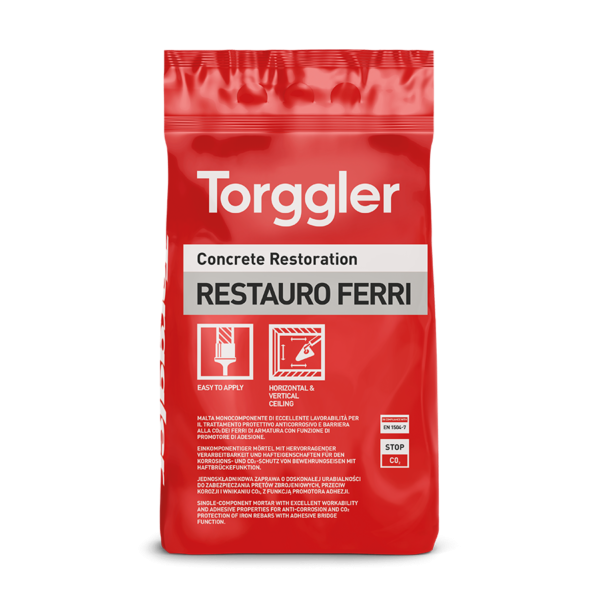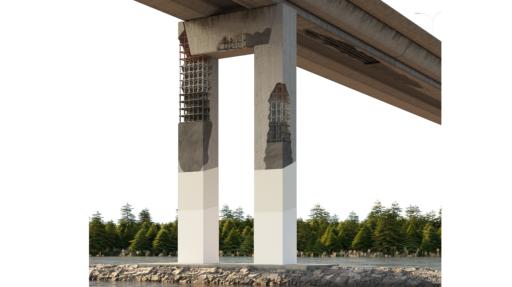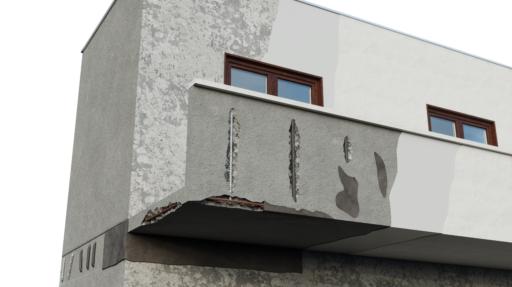Concrete Restoration
Restauro Ferri

- Exceptional adhesion to rebars and concrete
- High anti-CO2 protection
- Extremely easy to apply
- It ensures the perfect adhesion of mortars to the substrate
- Excellent thixotropy
Demolish the degraded concrete until the rebars are exposed. Remove, by careful hammering and chiselling, cement residues and loose, crumbling, inconsistent parts until the sound, durable substrate is reached. Expose the reinforcement rods on the surface, completely releasing them from the grip of the carbonatated concrete, then all around the circumference, even in apparently healthy areas. Clean the iron well until it is “white” (until it becomes shiny) using a hydro-sandblaster or dry sandblaster to remove dust, release agent or paint residues, cement slurry, loose surface coatings and rust. In case of limited degradation, manual cleaning with a steel brush or other usual equipment is sufficient. If it is necessary to supplement the reinforcement with additional reinforcement, or to replace parts of the old reinforcement which have deteriorated too much and can no longer fulfil their function, the new reinforcement must also be treated in the same way, i.e. it must be treated until it is “white”.re
Restauro Ferri has been specifically designed for the anticorrosive treatment of rebars in the cycle of restoration and anti-carbonation protection of reinforced concrete carried out with products of the Restauro system, of conservative restoration carried out with Restauro R2, Restauro Smart, Rinnova and of structural restoration carried out with Restauro R3, Restauro R4, Strutturale and Colabile. Restauro Ferri can also be used as an adhesion promoter to ensure the adhesion of mortars on the support.
| Color | Code | Packaging | Packaging size | Pallet | Barcode |
|---|---|---|---|---|---|
|
|
5523 | bag | 4x5 kg | 40 cardboards |
|


